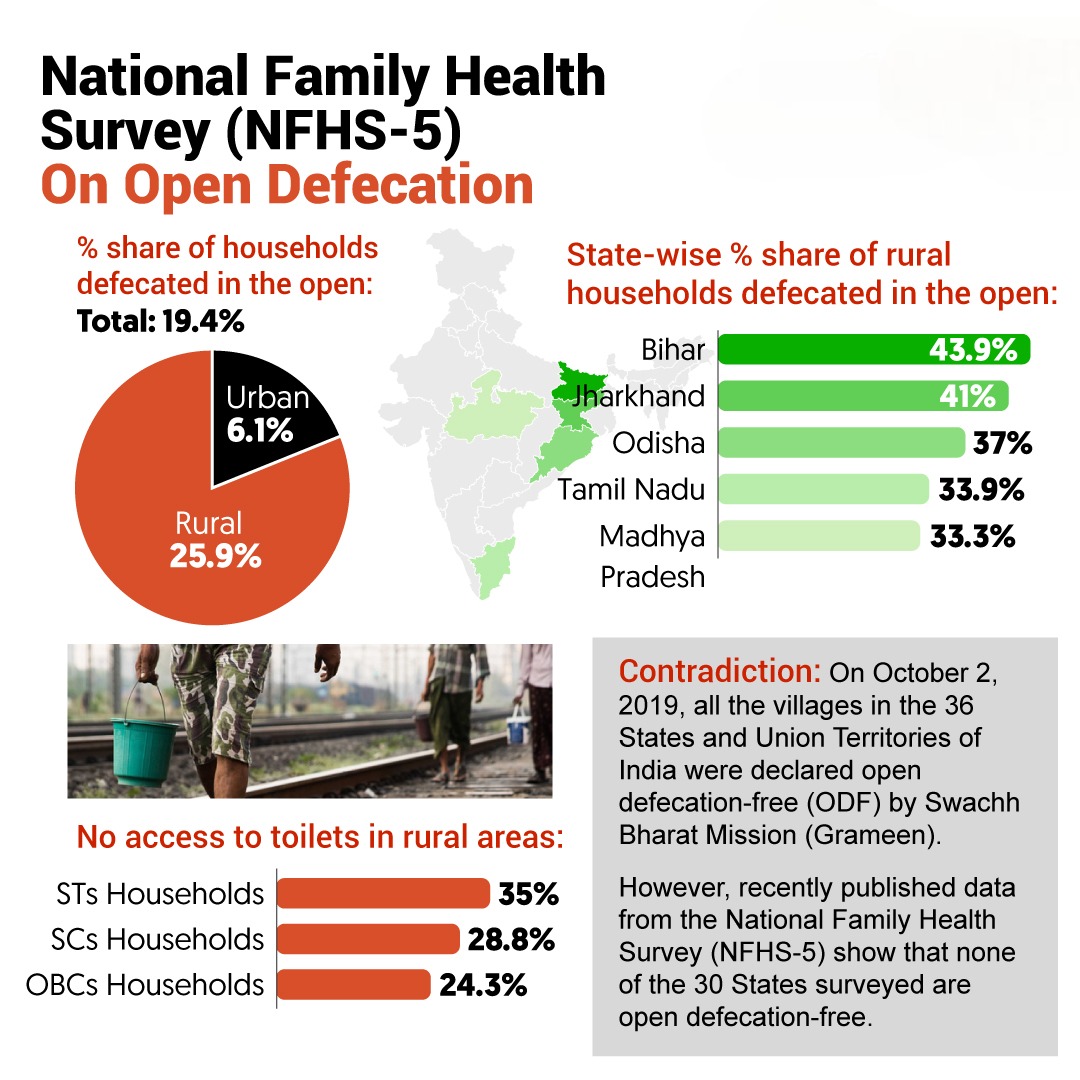Rights Groups Demand Questions On Disability Remain In NFHS-6
Context:
Disability rights groups are calling for an immediate correction and inclusion of questions regarding disabilities in the National Family Health Survey (NFHS-6), which is scheduled to begin in July.
National Family Health Survey 
- Purpose: The NFHS is carried out in India with the intention of collecting thorough data on all facets of family welfare and health for the purpose of informing programme planning, policy formulation, and assessment.
- Partners in the ministry: The survey is conducted by the International Institute for Population Sciences (IIPS), selected state agencies, and the Ministry of Health and Family Welfare, Government of India.
- Survey Rounds: The NFHS is periodically administered, usually with a few-year break between rounds. The NFHS-5 cutoff is the most recent round as far as I’m aware, and it started in 2019.
- Data collection: To assure representative data at the federal, state, and local levels, the survey uses a multi-stage, stratified sample approach. It gathers data by administering standardised questionnaires to eligible men and women (15-54 years old) chosen as part of the sample.
- Topics covered: The National Family Health Survey (NFHS) examines a wide range of health and demographic variables, including fertility, maternal and child health, nutrition, family planning methods, use of medical services, reproductive health, HIV/AIDS, and other relevant topics.
- Data Analysis: To produce reports, the gathered data is subjected to in-depth quality checks and analysis. The status, trends, and differences in health and family welfare indicators across various geographic locations and population subgroups are discussed in these publications.
- Impact on Policy and Programmes: The NFHS data is essential to the development of health and family welfare policies and programmes. The findings support the identification of important areas of attention, comprehension of the efficacy of current interventions, and development of evidence-based decisions for enhancing health outcomes.
- Public Access: The NFHS reports are made available to the general public, enabling academics, NGOs, and other interested parties to access the information and utilise it for advocacy, additional analysis, and study.
Points to Ponder:
- Disability questions may not be included in the National Family Health Survey (NFHS-6) survey questionnaire, according to disability rights advocates.
- The previous survey, the NFHS-5, asked questions about disabilities and gathered data on them. However, reputable sources claim that the NFHS-6 has withdrawn these inquiries.
- In order to provide disability-specific services and meet the needs of persons with disabilities in the nation, the Disability Rights India Foundation (DRIF) emphasises the significance of disability disaggregated data.
- The Health Ministry and other organisations use the NFHS, an important survey that offers crucial information on health and family welfare, to design policies and programmes.
- The DRIF contends that by leaving out questions about disabilities, the NFHS-6 misses a chance to gather important data on disabilities and support policies and programmes that are inclusive of people with disabilities.
- Instead of fully deleting items pertaining to disabilities, the group advises that the NFHS interact with persons with disabilities to improve its questionnaire and make it more pertinent to their experiences.
- Disability rights advocates request that the Ministries of Health, Social Justice and Empowerment, and NITI Aayog act to ensure that questions about disabilities are included in the NFHS-6, in accordance with the 2016 Rights of Persons with Disabilities Act’s “leave no one behind” guiding principle.
- They point out that the removal of issues pertaining to disabilities is backwards given that India is a signatory to both the Sustainable Development Goals (SDGs) and the Convention on the Rights of Persons with Disabilities (CRPD).
- The disparity in life expectancy that affects persons with impairments in India is addressed by Satendra Singh, a doctor and activist for disability rights.
- In order to achieve health equity and develop successful policies that address the needs and experiences of persons with disabilities, Singh emphasises the necessity of data collecting and monitoring indicators.
- Relevant authorities must address the issues brought up by disability rights advocates and make sure that questions about disabilities are included in the NFHS-6 survey form. In addition to advancing health equity and upholding India’s obligations to disability rights, this would help us better understand and respond to the needs of those who have impairments.





